Police say convoy of more than 100 vehicles was shot at but no casualties reported
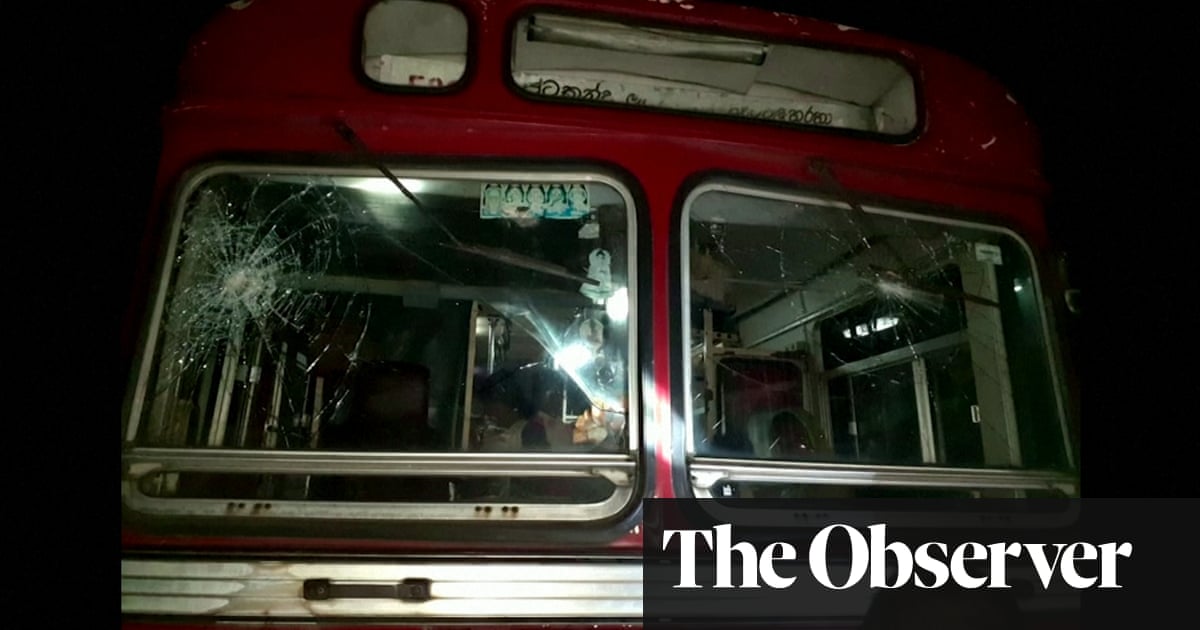
Buses transporting Muslims to cast their ballots in Sri Lankas presidential election have been attacked by gunfire, fuelling fears that minorities are being targeted to stop them from voting.
Police officials confirmed that the buses, which were carrying hundreds of Muslim residents from the north-west town of Puttalam, were hit on Saturday morning when attackers burned tyres on the road and set up makeshift roadblocks to ambush the convoy of more than 100 vehicles.
The gunmen opened fire and also pelted stones, said an official in Tantirimale, 150 miles (240km) north of the capital, Colombo. At least two buses were hit, but we have no reports of casualties.
The Muslim group were travelling to the neighbouring district of Mannar, where they were registered to vote. There were also reports of a heavy military presence and unauthorised roadblocks in Jaffna, northern Sri Lanka, which is home to the majority of the countrys Tamil population.
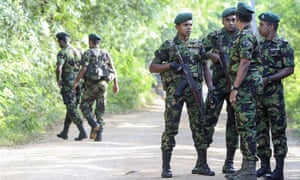
Sri Lankas presidential election is taking place just seven months after the Easter Sunday attacks by self-radicalised Islamist extremists who carried out multiple bombings, killing 269 people in attacks on churches and hotels. In the aftermath, there has been a surge of attacks, cases of harassment and boycotts on Sri Lankas Muslim community, who make up 9% of the population.
There are a record 35 candidates running in the election but the race is between Gotabaya Rajapaksa, the brother of the former president Mahinda Rajapaksa, running for the Sinhalese-Buddhist nationalist SLPP party, and Sajith Premadasa, a minister in the current United National party (UNP) government.
The presidential contest is predicted to be extremely tight and the minority Tamil and Muslim groups are seen as crucial to swinging the vote.
The Muslim community has expressed particular concern about the potential election of Gotabaya Rajapaksa, who has run on a strident security agenda and has the backing of nationalist Buddhist groups responsible for stoking anti-Muslim sentiment and violence in recent years. As a result, it is predicted that Muslims will mainly throw their votes behind Sajith Premadasa and the UNP.
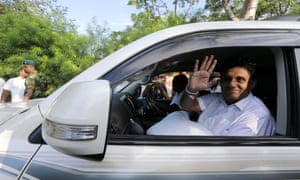
Many in the Tamil community are equally resistant to the return of Gotabaya Rajapaksa to power. As his brothers defence minister, he oversaw the brutal and bloody conclusion to the Sri Lankan civil war, where tens of thousands of Tamils died, and his military death squads were responsible for thousands of disappearances of Tamils and critics of the state.
Timeline
Sri Lanka civil war
1975The Liberation Tigers of Tamil Eelam group forms, demanding a separate state for ethnic-minority Tamils in the island’s north and east.
1983 Civil war begins.
1991 A Tamil Tiger suicide bomber assassinates the Indian prime minister, Rajiv Gandhi, apparently in revenge for sending Indian peacekeeping troops who ended up fighting the rebels.
1993 Another Tamil Tiger suicide bomber kills Sri Lanka’s president, Ranasinghe Premadasa, after failed peace efforts.
February 2002 The Sri Lankan government signs a ceasefire with theTamil Tigers.
June 2005 Relations between the government and rebels deteriorate over sharing international tsunami aid.
August 2005 Assassination of the foreign minister, Lakshman Kadirgamar, an ethnic Tamil who opposed a separate state for the minority. Tigers are blamed.
December 2005 Rebels launch their first major attack since the 2002 truce, killing a dozen Sri Lankan sailors. A series of attacks follow.
22 February 2006 Government and rebel officials meet in Switzerland for peace talks and agree to reduce violence. A second round of talks scheduled for a few months later is postponed as the two sides argue over transport and security.
8 June 2006 Collapse of talks in Norway aimed at restoring peace.
20 July 2006 The Tamil Tigers close the sluice gates of an eastern reservoir, cutting water to more than 60,000 people, prompting the government to launch its first major offensive on Tiger territory since the 2002 ceasefire.
2 November 2007 A government air raid kills the Tamil Tigers’ political boss, SP Thamilselvan, believed to be second-in-command.
2 January 2008 The government says the Tamil Tigers must disarm before peace talks.
16 January 2008 Sri Lanka’s ceasefire is officially terminated.
29 August 2008Sri Lankaurges civilians living in rebel-held areas to flee to government-run territory.
2 January 2009 The military says Sri Lankan forces have entered the guerrillas’ de facto capital, Kilinochchi, predicting it will fall within hours.
11 January 2009 An article byLasantha Wickrematunge, one of Sri Lanka’s best-known journalists, is posthumously published in which he foresees his own murder by the government.
5 February 2009 Sri Lanka snubs the international community’s call for a ceasefire, saying troops will not suspend their offensive against Tamil Tiger rebels.
10 February 2009 The Red Cross evacuates 240 sick and wounded people by boat from the north-east war zone as the military accuses rebel fighters of killing 19 civilians fleeing the area.
13 February 2009 Sri Lanka accuses Britain of meddling after Gordon Brown appoints the former defence secretary Des Browne as a special envoy to the country.
20 February 2009 Two Tamil Tiger aircraft launch a surprise raid on Colombo, hitting a tax building and injuring at least 27 people. Sri Lankan jets shoot down one aircraft.
23 February 2009 Tamil Tiger rebels tell the UN and the international community they are willing to accept a ceasefire but reject calls to lay down arms and surrender. The Sri Lankan government rejects the offer.
7 April 2009Sri Lanka rejects a call by the UN for a ceasefire.
21 April 2009Unicef says it faces a “human avalanche” of civilians fleeing the conflict. Sri Lanka gives the rebels 24 hours to surrender.
24 April 2009The United Nations says nearly 6,500 civilians have been killedand 14,000 wounded in three months of offensive against the Tigers.
26 April 2009 Tigers declare unilateral ceasefire.Sri Lanka calls it “a joke” and says LTTE must surrender.
16 May 2009 Thearmy seeks to destroy the last pocket of Tamil fightersin defiance of international pleas for a halt to the fighting and accusations from the UN that they had triggered a bloodbath. President Mahinda Rajapaksa, at a meeting of developing nations in Jordan, says the LTTE has been defeated militarily, even as fighting rages.
17 May 2009More than 70 LTTE fighters are killed trying to flee by boat. Many more blow themselves up in suicide attacks as the army battles to finish them off. Military declares all civilians freed; says number in excess of 72,000 over four days. Rebels say the war has reached the “bitter end”.
18 May2009The Sri Lankan government formally declares an end to the 25-year civil warafter the army took control of the entire island and killed the Tamil Tigers’ rebel leader, Velupillai Prabhakaran.
Ratnajeevan Hoole, an election commissioner, said the authorities had ignored his pleas to provide adequate protection to internally displaced Muslims going to vote in the multi-ethnic north-west.
They [Muslims] asked for polling booths in the areas where they are living without having to travel a long distance to their original village to vote, Hoole said in a statement. They were sure that a disturbance like this would happen.
Police reinforcements rushed to the troubled area, cleared road obstructions and escorted the convoy so passengers could cast their ballots.
There were also reports that police and military troops were locked in a tense standoff in Jaffna, with residents complaining of military roadblocks. With the Tamil vote expected to favour the UNP, a reduced voter turnout could favour Gotabaya Rajapaksa.
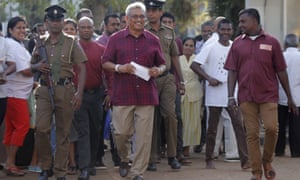
As a former defence secretary and de facto head of the army, Gotabaya Rajapaksa still has extremely close ties to the military.
Police reported to the independent election commission that the army in Jaffna was illegally manning roadblocks that could discourage residents from travelling to polling booths.
After bringing to the notice of the army that the roadblocks were illegal at a time of a national election, they have dismantled them, police said in a statement.
Police sources said they had also warned local military commanders that any disruption to the election would be reported to courts and offenders would be prosecuted.
AFP contributed to this report

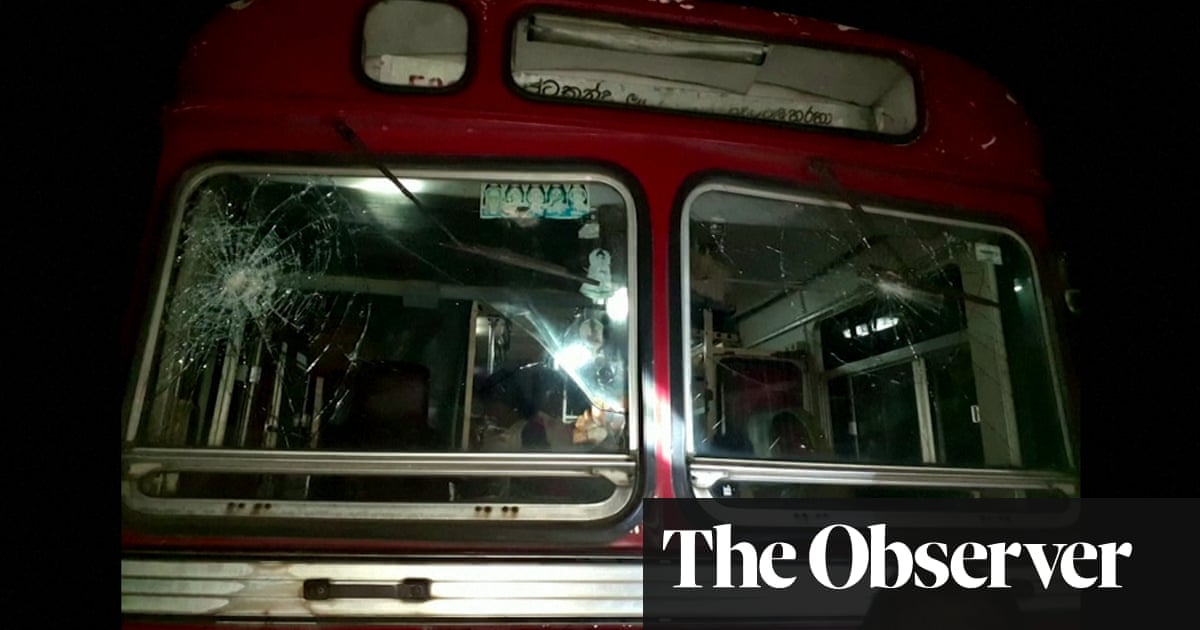
Recent Comments